How Dirt and Debris Affect the Performance of the Condenser Coil
Understanding the impacts of contamination helps property owners recognize the importance of professional HVAC maintenance in preserving optimal cooling operation.
Accumulated dirt and debris on condenser coils significantly challenge air conditioning system performance and efficiency. Understanding the impacts of contamination helps property owners recognize the importance of professional HVAC maintenance in preserving optimal cooling operation.
Impact on Heat Transfer
Dirt buildup on condenser coil surfaces forms an insulating layer that impedes proper heat transfer. The contamination barrier prevents the efficient release of heat from refrigerant to outdoor air. Professional HVAC repair services include specialized cleaning procedures to restore optimal heat transfer capability.
Airflow Restriction Effects
Debris accumulation between condenser coil fins restricts vital airflow across heat transfer surfaces. Reduced airflow diminishes the coil's ability to effectively dissipate heat. Professional maintenance removes restrictions to maintain the designed airflow patterns.
Energy Consumption Increase
Dirty condenser coils force air conditioning systems to operate longer cycles to achieve the desired cooling levels. Extended runtime increases energy consumption and operating costs. HVAC repair technicians can measure efficiency losses caused by contaminated coils.
System Pressure Problems
Compromised heat transfer at dirty condenser coils leads to elevated system pressures. High operating pressures strain components and reduce efficiency. Professional HVAC services monitor pressure relationships to identify coil-related issues.
Component Stress Factors
Contaminated condenser coils place additional stress on system components, particularly compressors. Increased workload accelerates wear and may lead to premature failure. Professional maintenance prevents excessive component stress through proper coil care.
Performance Degradation Signs
Common indicators of dirty condenser coils include reduced cooling capacity and increased energy bills. Unusual noises or extended runtime may signal coil-related problems. Professional HVAC repair expertise helps identify developing performance issues.
Preventive Maintenance Value
Regular professional cleaning prevents severe contamination accumulation on condenser coils. Scheduled maintenance reduces the risk of efficiency losses or system failures. HVAC installation planning includes provisions for routine coil maintenance access.
Environmental Impact
Clean condenser coils support environmentally responsible system operation. Efficient heat transfer reduces energy consumption and associated emissions. Professional maintenance aligns with sustainable building operation practices.
Cleaning Methods and Equipment
Professional HVAC services utilize appropriate cleaning techniques and solutions for condenser coils. Specialized equipment allows thorough cleaning without damaging delicate components, and expert procedures safely restore optimal coil performance.
Cost Implications
Neglected condenser coils contribute to increased operating costs through reduced efficiency. Emergency repairs caused by severe contamination add further expense. Professional maintenance represents a cost-effective investment in system performance.
System Lifespan Effects
Regular professional cleaning helps extend the service life of air conditioning systems. Maintained components experience less operational stress and wear. HVAC repair services prevent premature system replacement through proper coil care.
Diagnostic Procedures
Professional technicians employ various methods to assess condenser coil condition. Temperature measurements reveal heat transfer effectiveness, and pressure testing helps identify performance impacts of coil contamination.
Weather Exposure Factors
The outdoor location exposes condenser coils to various contamination sources. Professional HVAC services consider local conditions when planning maintenance intervals. Regular cleaning effectively addresses site-specific challenges.
Performance Recovery Steps
Addressing dirty condenser coil issues requires systematic cleaning and verification. Professional HVAC repair services restore proper operation through proven procedures. Performance testing confirms the effectiveness of maintenance measures.
Long-term Protection
Professional maintenance includes strategies to minimize future contamination accumulation. HVAC installation may incorporate protective features where appropriate. Regular service maintains defensive measures against coil contamination.
Seasonal Considerations
Maintenance timing adjusts to address seasonal contamination patterns. Professional HVAC services recommend appropriate cleaning intervals based on conditions. Pre-season preparation supports reliable cooling performance.
Operating Cost Control
Clean condenser coils contribute to controlled operating costs through efficient operation. Professional maintenance prevents excessive utility expenses, and regular service supports budget-friendly system operation.
Technology Integration
Modern systems may include monitoring capabilities for condenser performance. Professional HVAC services leverage advanced features to optimize maintenance timing, and technology supports proactive coil care strategies.
Performance Documentation
Professional maintenance includes detailed records of cleaning procedures and results. Documentation supports warranty compliance and service planning, and regular reporting tracks system efficiency trends.
Professional HVAC maintenance is vital in preventing performance problems caused by dirty condenser coils. Regular cleaning by qualified technicians maintains efficient heat transfer while controlling operating costs. Property owners benefit from reliable cooling operation through proper condenser coil care provided by experienced HVAC professionals.

